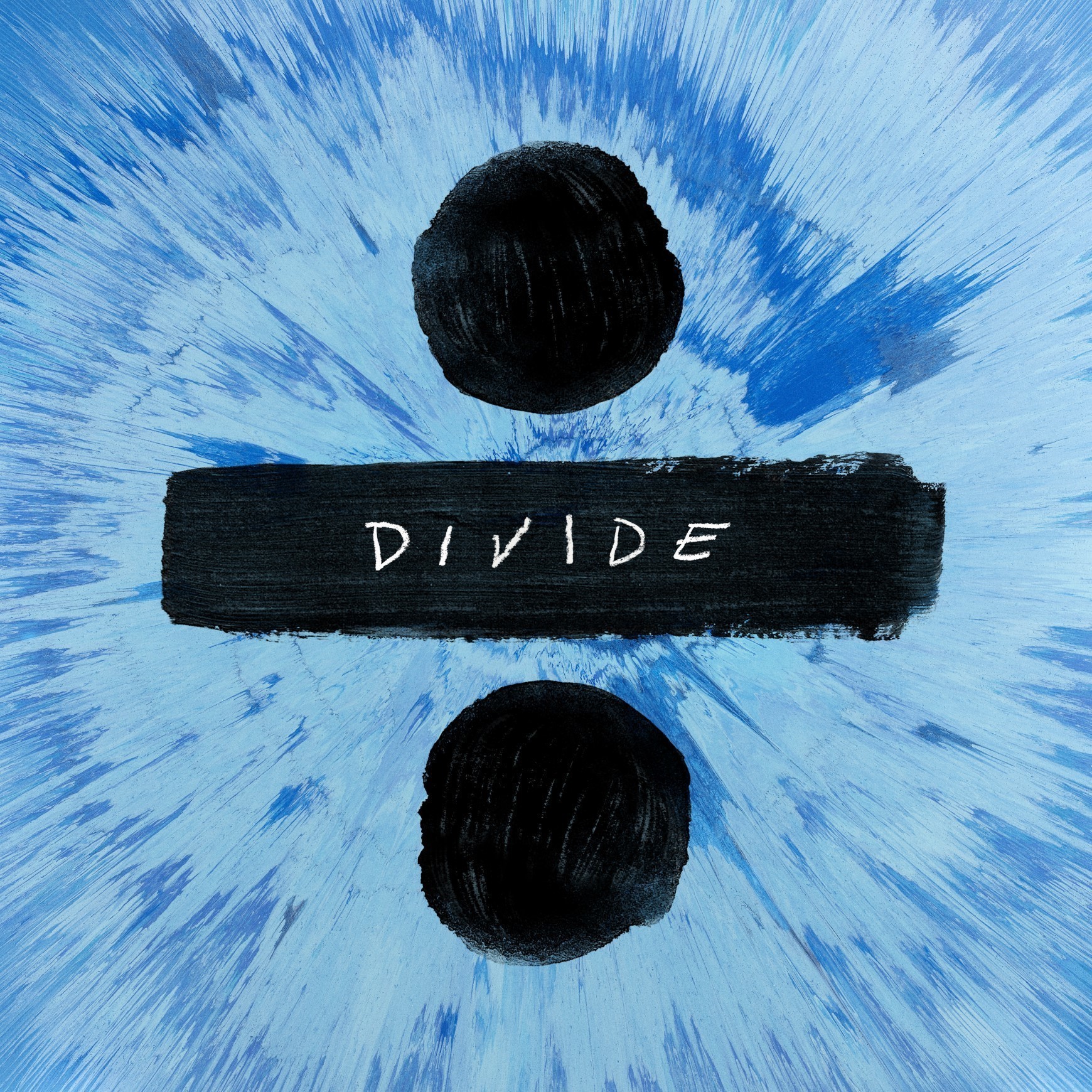No modern mainstream musician represents the friend zone more than Ed Sheeran, who was introduced to the United States as Taylor Swift’s grinning, ginger teddy bear of a BFF, a public relationship ripped right from a textbook on tropes. She was a beautiful blonde serial dater of shallow pop stars and obvious bad boys; he was blessed with a poet’s heart and a gamer’s face. They could never be together because of society, of course, though that didn’t mean Ed couldn’t always be there for her, a steady presence made for award show selfies and platonic duets.
Nice guys always want to be taken more seriously than their carefully painted stereotype, and the announcement of his new album, ÷ (pronounced “divide”), came with two singles that served different needs “Castle on the Hill,” with its ascendent arrangements and sentimental appeal to the past, sounded not dissimilar to older songs, and singles by British soft-hearted rockers Snow Patrol and Coldplay. “Shape of You,” on the other hand, was something uncharacteristic: a nimble club track originally written for Rihanna, in which Sheeran sang about getting drunk in a bar and lusting after someone’s body.
My initial reaction was disbelief, despite the song’s percussive charms. Here was this lost Weasley brother, cooing about gyration and taxi make-out sessions, in an attempt to simulate the experience of a world-eating sex goddess like Rihanna. But Sheeran, like millions of people around the world—some of them “nice guys,” some of them not—who will never be fit enough to walk a runway, is still entitled to his lusty, awkward feelings. In “Shape of You,” which has topped the Billboard charts for five straight weeks, I heard an unremarkable everyman insisting on his right to everything that comes with love—basic horniness and all.

Also Read
Choppered and Tuned
Love is the delivery system for all of Sheeran’s ideas; you can read worldviews about friendship, family, relationships, and even politics in his romantic croon. On ÷, which comes as an on-again, off-again relationship with a high school sweetheart has settled into domesticity, he idealizes love as a firm rock on which to stand, a place to call home at the end of the day. Songs like “Perfect,” “Dive,” and “How Would You Feel (Paean)” express this earnest sentiment in straightforward terms. Unlike Taylor, whose pop ambition has led her away from the country songwriting that characterized her earlier career, Sheeran still sounds most comfortable singing unadorned, accompanied by little more than a cleanly strummed acoustic guitar (and in extravagant cases, a weepy orchestral arrangement).
These songs are more believable—touching, even, if you’re not put off by the milky expressiveness of his voice—than the multiple attempts at rapping. Though rap dominated pop radio when Sheeran was coming of age, making it an obvious style for a pop musician like him to adopt, it’ll always seem like a costume, on account of his deeply uncool whiteness. “Eraser” boasts rap-styled grievances about fame and the industry, before he name drops Damian Rice and belts a big, heartfelt chorus that could’ve been written for the Goo Goo Dolls—a switch that immediately sounds more natural.
Through Sheeran’s short yet unbelievably successful career, he’s worked dutifully to expand the notion of how people like him should behave. The knock on nice guys is that once you strip away their entitlement about how women should treat them, they don’t believe in much at all. His appeal of his biggest hit, 2014’s “Thinking Out Loud,” came from the mawkish sincerity of this frumpy, downcast nerdy boy proclaiming the truest of feelings. “Don’t,” his other huge hit, spat with a scorned lover’s vitriol about a public relationship gone sour. “Don’t fuck with my love,” he sang, an admonition that his generously dispensed trust could easily curdle to indignation if not properly respected—more than the infinitely understanding nice guy was ever meant to assert.
Nevertheless, his assertions about the people who deserve the love he romanticizes reveal some frankly boring ideas about how a person should be. “New Man” seems like an almost sophisticated take on modern breakups—I only want to learn about your new lover when you’re telling me naturally, and not just to irritate me, he reasonably offers—before he spits an accusation: “You were the type of girl who sat beside the water readin’ / Eatin’ a packet of crisps, but you will never find you cheatin’ / Now you’re eatin’ kale, hittin’ the gym / Keepin’ up with Kylie and Kim.”
Brainy and slightly chubby are just OK; reality television and Vitamin K are not. Whether or not Sheeran’s IRL beliefs actually fall along accepted gender roles is besides the point; his invocation of these stereotypes plays into a conventional “us vs. them” conflict situating authenticity and performance at opposite ends of the moral battlefield. For all his nice guy bona fides, perhaps that means Sheeran isn’t too different from Drake, another nonthreatening Ned with uninteresting ideas about how women are supposed to act. And maybe that explains the friendship with Taylor, the ultimate fake-nice celebrity who never uttered a positivity mantra she wasn’t willing to ditch in order to get one over in a feud.
And yet I find myself convinced by Sheeran’s affable, “aw shucks” demeanor and the calming strength of his faith in love. That his best songs about love’s boons are sung as slow, soul-gripping ballads offers something clarifying about his relatively humble mission statement. On “What Do I Know,” Sheeran timidly suggests that despite his lack of formal education, he still believes “love can change the world in a moment,” and this thin feint at social commentary isn’t totally meaningless in a global moment where the far right has risen to power on a platform of “fuck you, got mine.” Sheeran’s ear for melody and clever turn of phrase has won him acclaim as a songwriter for himself and for others, but his power stems from his belief that the simplest emotions are still worth stating plainly, that their meaning isn’t reduced because of their obviousness. This alone doesn’t make him a nice guy, but it does mean that he means what he says, both good and bad.




